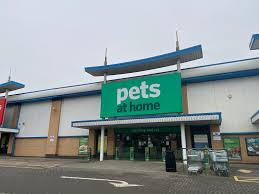Nutrition and Diet for Pets – A Detailed Guide
Proper nutrition and diet are crucial for maintaining the health and well-being of pets. Just like humans, pets require a balanced diet to ensure they receive all the necessary nutrients for growth, energy, and overall health. Understanding the dietary needs of different pets and providing them with appropriate food can significantly enhance their quality of life. This article will explore the fundamentals of pet nutrition, and common dietary needs of various pets, and provide an overview of career opportunities in the field of pet nutrition.

Fundamentals of Pet Nutrition
Essential Nutrients
Pets require a variety of nutrients to thrive, including:
- Proteins: Essential for growth, repair, and maintenance of tissues.
- Fats: Provide energy, support cell function, and promote healthy skin and coat.
- Carbohydrates: Source of energy and aid in digestive health.
- Vitamins: Support various bodily functions, including metabolism and immunity.
- Minerals: Important for bone health, nerve function, and muscle contraction.
- Water: Vital for all bodily functions, including digestion, circulation, and temperature regulation.
Balanced Diet
A balanced diet ensures that pets receive the right proportions of these essential nutrients. Commercial pet foods are formulated to provide balanced nutrition, but it’s important to choose the right type of food based on the pet’s age, size, and health condition.
Dietary Needs of Different Pets
Dogs
Nutritional Requirements: Dogs require a diet rich in proteins and fats, with moderate carbohydrates. They need essential vitamins and minerals to support their active lifestyle.
Common Foods: Commercial dog food (dry and wet), raw diets, and homemade diets with veterinary guidance.
Special Considerations: Puppies, adult dogs, and senior dogs have different dietary needs. Special diets may be required for dogs with health conditions like allergies or kidney disease.
Cats
Nutritional Requirements: Cats are obligate carnivores, meaning they require a diet high in animal proteins and fats. They also need specific nutrients like taurine and arachidonic acid, which are found in animal tissues.
Common Foods: Commercial cat food (dry and wet), raw diets, and specially formulated veterinary diets.
Special Considerations: Kittens, adult cats, and senior cats have different nutritional needs. Cats with conditions like urinary tract issues or diabetes may require special diets.
Birds
Nutritional Requirements: Birds need a diet that includes seeds, grains, fruits, vegetables, and occasional proteins. Different bird species have specific dietary needs.
Common Foods: Commercial bird food mixes, fresh fruits and vegetables, and specially formulated diets for specific bird species.
Special Considerations: Overfeeding seeds can lead to obesity and nutritional deficiencies. Birds require a variety of foods to ensure balanced nutrition.
Fish
Nutritional Requirements: Fish need a diet that provides proteins, fats, vitamins, and minerals. Different species have specific dietary needs.
Common Foods: Commercial fish food (flakes, pellets), live foods (brine shrimp, bloodworms), and freeze-dried foods.
Special Considerations: Overfeeding can pollute the tank and harm fish health. Dietary needs vary significantly between freshwater and saltwater fish.
Small Mammals (Hamsters, Guinea Pigs, Rabbits)
Nutritional Requirements: Small mammals need a diet high in fiber, with adequate proteins and fats. They also require fresh vegetables and occasional fruits.
Common Foods: Commercial small mammal food, hay, fresh vegetables, and fruits.
Special Considerations: Guinea pigs require vitamin C supplements, as they cannot synthesize it on their own. Rabbits need a high-fiber diet to maintain digestive health.
Careers in Pet Nutrition
The pet nutrition industry offers a range of career opportunities for those passionate about animal health and wellness. Here are ten types of jobs available in the field of pet nutrition:
- Pet Nutritionist
- Veterinarian
- Animal Nutrition Researcher
- Pet Food Product Developer
- Veterinary Technician
- Pet Dietitian
- Animal Nutrition Consultant
- Quality Control Specialist
- Sales Representative for Pet Food Companies
- Animal Health Educator
1. Pet Nutritionist
Role and Responsibilities: Pet nutritionists develop diet plans and nutritional guidelines for pets, often working with pet owners and veterinarians to address specific dietary needs.
How to Apply: A degree in animal nutrition or veterinary science is typically required. Certification from organizations like the American College of Veterinary Nutrition can enhance job prospects. Apply through veterinary clinics, pet food companies, or as an independent consultant.
2. Veterinarian
Role and Responsibilities: Veterinarians diagnose and treat illnesses in pets, including those related to nutrition. They provide dietary recommendations and manage health conditions through diet.
How to Apply: A degree in veterinary medicine and a license to practice are required. Apply through veterinary clinics, hospitals, or animal health companies. Networking and joining veterinary associations can also help in finding job opportunities.
3. Animal Nutrition Researcher
Role and Responsibilities: Animal nutrition researchers conduct studies to understand the dietary needs of different animals and develop new pet food formulations.
How to Apply: A degree in animal science, nutrition, or a related field is necessary. Research positions can be found in universities, research institutions, and pet food companies.
4. Pet Food Product Developer
Role and Responsibilities: Product developers create new pet food products, ensuring they meet nutritional standards and are appealing to pets.
How to Apply: A background in food science, nutrition, or veterinary science is beneficial. Apply through pet food manufacturers and companies specializing in pet products.
5. Veterinary Technician
Role and Responsibilities: Veterinary technicians assist veterinarians in clinical procedures and provide nutritional advice to pet owners.
How to Apply: Certification or an associate degree in veterinary technology is required. Apply through veterinary clinics, hospitals, and animal shelters.
6. Pet Dietitian
Role and Responsibilities: Pet dietitians work with pet owners to develop customized diet plans based on their pets’ health needs and lifestyle.
How to Apply: A degree in animal nutrition or veterinary science is recommended. Apply through veterinary clinics, pet food companies, or as an independent consultant.
7. Animal Nutrition Consultant
Role and Responsibilities: Consultants provide expert advice on animal nutrition, often working with pet food companies, veterinary clinics, and pet owners.
How to Apply: A background in animal nutrition or veterinary science is beneficial. Apply through consulting firms, veterinary clinics, or as an independent consultant.
8. Quality Control Specialist
Role and Responsibilities: Quality control specialists ensure pet food products meet safety and nutritional standards through rigorous testing and evaluation.
How to Apply: A degree in food science, nutrition, or a related field is helpful. Apply through pet food manufacturers and companies specializing in pet products.
9. Sales Representative for Pet Food Companies
Role and Responsibilities: Sales representatives promote and sell pet food products to veterinary clinics, pet stores, and directly to pet owners.
How to Apply: Sales experience and a background in animal nutrition or veterinary science can be advantageous. Apply through pet food manufacturers and distributors.
10. Animal Health Educator
Role and Responsibilities: Educators teach pet owners and veterinary professionals about proper pet nutrition and diet, often through workshops, seminars, and online courses.
How to Apply: A background in animal science, education, or veterinary science is beneficial. Apply through educational institutions, veterinary clinics, or as an independent educator.
How to Apply for Jobs in Pet Nutrition
Applying for jobs in the pet nutrition industry involves several steps:
- Research Job Requirements: Understand the qualifications and experience needed for the job you are interested in.
- Obtain Certification: Certification from recognized organizations can enhance job prospects, particularly for specialized roles like pet nutritionists.
- Prepare Application Materials: Tailor your resume and cover letter to highlight relevant skills and experience. For creative roles like pet photography, prepare a portfolio.
- Search for Job Openings: Use job search engines, company websites, and professional networks to find job openings.
- Submit Applications: Follow the application instructions carefully. Submit your resume, cover letter, and any other required documents.
- Prepare for Interviews: Research the company and prepare to discuss your experience and how it aligns with the job role.
- Follow Up: After submitting your application or attending an interview, follow up with a thank-you email or call to express your continued interest in the position.
Conclusion
Nutrition and diet play a vital role in maintaining the health and well-being of pets. Understanding the specific dietary needs of different pets and providing balanced nutrition can significantly enhance their quality of life. From dogs and cats to birds and fish, each pet has unique nutritional requirements that must be met for optimal health.
The pet nutrition industry offers a range of career opportunities for those passionate about animal health and wellness. Whether you aspire to be a pet nutritionist, veterinarian, or animal nutrition researcher, there are numerous paths to explore. By obtaining the necessary qualifications and following the outlined application steps, individuals can build fulfilling careers in pet nutrition.
Ultimately, proper nutrition and diet are fundamental to ensuring pets lead healthy, happy lives, and the professionals in the pet nutrition industry play a crucial role in achieving this goal.





